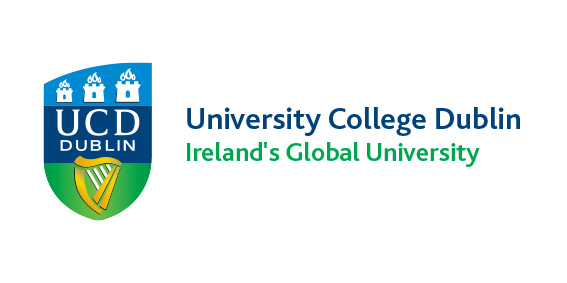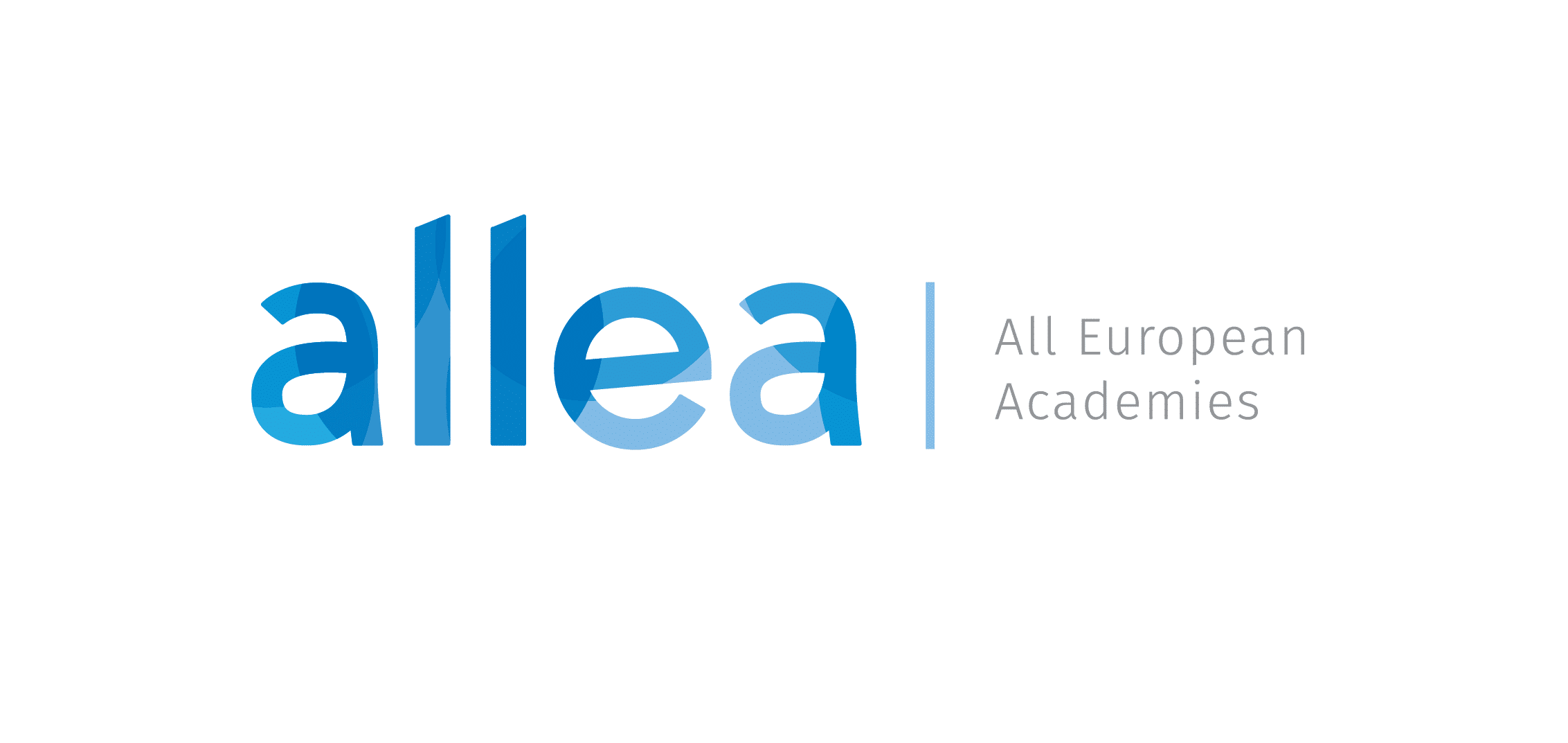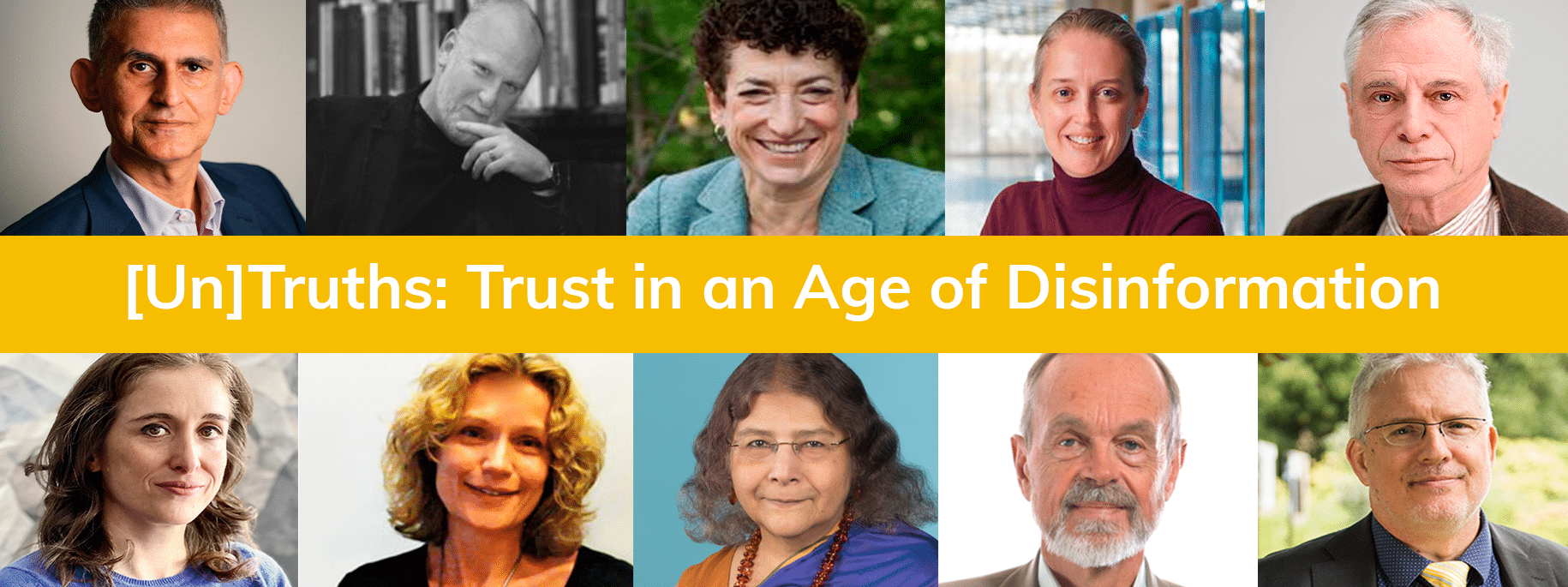
PERITIA Lectures
Truth and trust are becoming contentious topics for science and democracy. Conspiracy theories disrupt political elections, disinformation campaigns target scientific consensus around climate change and vaccines, and anti-elite populism overshadows public debates. In the midst of a pandemic, citizens find themselves asking quintessential philosophical questions: what truth is, whom we can trust, or how we should trust.
The PERITIA Lectures [Un]Truths: Trust in an Age of Disinformation delve into these phenomena to explore the concept of trust and truth in light of current events. Prominent philosophers and academics from Europe and the United States come together to present their latest research on trust in science, disinformation, vaccine hesitancy, conspiracy theories, trustworthy science, truth and democracy, and trust and cognitive science.
About the Series
The PERITIA Lectures were hosted by the UCD Centre for Ethics in Public Life and the American University of Armenia, with the support of ALLEA, the European Federation of Academies of Sciences and Humanities. The lectures were open to all upon registration via Zoom and moderated by science communicator Shane Bergin.
The lectures were composed by two parts, from April to June, and from October to November, 2021. Participants were invited to join an interactive Q&A debate after each lecture. Reading materials are available for academic purposes on this page. You can rewatch and explore all materials about the series below.
Watch all lectures here!
Listen to all lectures in podcast form here!
Lecture 1: Trust in Science
Naomi Oreskes, Harvard University
6 April, 4 PM Dublin | 5 PM Berlin
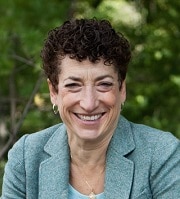
Naomi Oreskes is the Henry Charles Lea Professor of the History of Science and Affiliated Professor of Earth and Planetary Sciences at Harvard University. She is an internationally renowned geologist, science historian, and author of both scholarly and popular books and articles on the history of earth and environmental science. Her authored or co-authored books include The Rejection of Continental Drift (1999), Plate Tectonics: An Insider’s History of the Modern Theory of the Earth (2001), Merchants of Doubt (2010), the Collapse of Western Civilization (2014), Discerning Experts (2019), Why Trust Science? (2019), and Science on a Mission: How Military Funding Shaped What We Do and Don’t Know about the Ocean (2021).
For many years, Oreskes has been a leading voice on the science and politics of anthropogenic climate change. Her 2004 essay “The Scientific Consensus on Climate Change” (Science 306: 1686)–the first peer-reviewed paper to document the scientific consensus on this crucial issue–has been cited more than 2500 times. It was featured in the landmark Royal Society publication, “A Guide to Facts and Fictions about Climate Change,” and in the Academy-award winning film, An Inconvenient Truth. Her 2010 book, Merchants of Doubt, (co-authored with Erik M. Conway) has been translated into nine languages and made into a documentary film produced by Participant Media and distributed by SONY Pictures Classics.
In 2018 she was named a Guggenheim Fellow for a new book project with Erik M. Conway, The Magic of the Marketplace: The True History of a False Idea, which will be published by Bloomsbury Press as soon as it is finished.
Reading materials
Why Trust Science? (Princeton University Press 2019) – Chapter 1
Abstract
Do doctors really know what they are talking about when they tell us vaccines are safe? Should we take climate experts at their word when they warn us about the perils of global warming? Why should we trust science when our own politicians don’t? In this landmark book, Naomi Oreskes offers a bold and compelling defense of science, revealing why the social character of scientific knowledge is its greatest strength―and the greatest reason we can trust it.
Tracing the history and philosophy of science from the late nineteenth century to today, Oreskes explains that, contrary to popular belief, there is no single scientific method. Rather, the trustworthiness of scientific claims derives from the social process by which they are rigorously vetted. This process is not perfect―nothing ever is when humans are involved―but she draws vital lessons from cases where scientists got it wrong. Oreskes shows how consensus is a crucial indicator of when a scientific matter has been settled, and when the knowledge produced is likely to be trustworthy.
Based on the Tanner Lectures on Human Values at Princeton University, this timely and provocative book features critical responses by climate experts Ottmar Edenhofer and Martin Kowarsch, political scientist Jon Krosnick, philosopher of science Marc Lange, and science historian Susan Lindee, as well as a foreword by political theorist Stephen Macedo.
Lecture 2: Misunderstanding Conspiracy Theories
Quassim Cassam, Warwick University
20 April, 4 PM Dublin | 5 PM Berlin
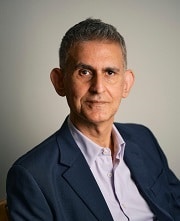
Biography
Quassim Cassam is a Professor in the Department of Philosophy at Warwick and the author of six books on a range of subjects, including self-knowledge, perception, intellectual vices and conspiracy theories. His current research is on intellectual vices, post-truth, extremism, the philosophy of terrorism, and the philosophy of general practice. He is writing a book called Extremism: A Philosophical Analysis. In the 2020/21 academic year he will be teaching an honours module on the Philosophy of Terrorism and Counterterrorism and a first year module on Knowledge, Ignorance and Bullshit. He is the Director of Research for the Department of Philosophy and a member of the Philosophy Sub-panel for the assessment phase of the 2021 Research Excellence Framework (REF2021).
Reading materials
Abstract
9/11 was an inside job. The Holocaust is a myth promoted to serve Jewish interests. The shootings at Sandy Hook Elementary School were a false flag operation. Climate change is a hoax perpetrated by the Chinese government.
These are all conspiracy theories. A glance online or at bestseller lists reveals how popular some of them are. Even if there is plenty of evidence to disprove them, people persist in propagating them. Why? Philosopher Quassim Cassam explains how conspiracy theories are different from ordinary theories about conspiracies. He argues that conspiracy theories are forms of propaganda and their function is to promote a political agenda. Although conspiracy theories are sometimes defended on the grounds that they uncover evidence of bad behaviour by political leaders, they do much more harm than good, with some resulting in the deaths of large numbers of people.
There can be no clearer indication that something has gone wrong with our intellectual and political culture than the fact that conspiracy theories have become mainstream. When they are dangerous, we cannot afford to ignore them. At the same time, refuting them by rational argument is difficult because conspiracy theorists discount or reject evidence that disproves their theories. As conspiracy theories are so often smokescreens for political ends, we need to come up with political as well as intellectual responses if we are to have any hope of defeating them.
Lecture 3: The Democratic Value of Truth
Michael Lynch, University of Connecticut
4 May, 4 PM Dublin | 5 PM Berlin
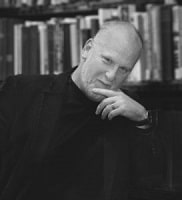
Biography
Michael Patrick Lynch is Board of Trustees Distinguished Professor of Philosophy at the University of Connecticut. He is the director of the Humanities Institute and director of the New England Humanities Consortium. His work concerns truth, democracy, public discourse and the ethics of technology.
Lynch’s newest book is Know-it-All Society: Truth and Arrogance in Political Culture. His other books include, The Internet of Us: Knowing More and Understanding Less in the Age of Big Data, In Praise of Reason: Why Rationality Matters for Democracy, Truth as One and Many and the New York Times Sunday Book Review Editor’s pick, True to Life.
The recipient of the Medal for Research Excellence from the University of Connecticut’s College of Liberal Arts and Sciences, he is the Principal Investigator for Humility & Conviction in Public Life, a $7 million project aimed at understanding and encouraging meaningful public discourse funded by the John Templeton Foundation and the University of Connecticut. A contributor to the New York Times “The Stone” weblog, Lynch’s work has been profiled in The New Yorker, The Washington Post and Wired (among others). He speaks regularly to both academic and non-academic audiences, and has appeared at such venues as TED, The Nantucket Project, Chautauqua, and South by Southwest.
Reading materials
“Power, Bold Faced Lies, and Contempt for Truth” (2020), Michael Lynch
Abstract
Truth and politics, as Arendt noted, always seem to be at war with one another. But if so, truth has been on the losing side recently, particularly in democratic societies around the globe. Against this background, we’ll explore two questions: First, what does it mean for truth to be a particularly democratic value? And second, what are the greatest threats to that value?
Lecture 4: Trustworthy Science Advice
Heather Douglas, Michigan State University
18 May, 4 PM Dublin | 5 PM Berlin
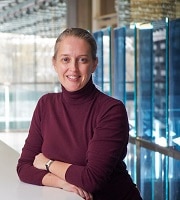
Biography
Heather Douglas is an Associate Professor in the Department of Philosophy and a member of the Socially Engaged Philosophy of Science Group at Michigan State University. She received her Ph.D. from the History and Philosophy of Science Department at the University of Pittsburgh in 1998, and has held tenure-line faculty positions at the University of Puget Sound, the University of Tennessee, and the University of Waterloo.
She is the author of Science, Policy, and the Value-Free Ideal (2009) as well as numerous articles on values in science, the moral responsibilities of scientists, and the role of science in democratic societies. She edits the book series Science, Values, and the Public for University of Pittsburgh Press. Her work has been supported by the U.S. National Science Foundation and the Social Sciences and Humanities Research Council of Canada.
In 2016, she was named a AAAS fellow. She is also a fellow of the Institute for Science, Society, and Policy at the University of Ottawa. In 2020, she was the lead organizer for the Public Engagement with Science: Defining and Measuring Success conference. In 2021, she will be the Senior Visiting Fellow at the Center for Philosophy of Science at the University of Pittsburgh.
Reading materials
- The Role of Scientific Expertise in Democracy, Heather Douglas
- Forthcoming in Routledge Handbook of Political Epistemology, Michael Hannon &
Jereon de Ridder (eds.) - “Science, Values, and Citizens“, Heather Douglas
- Forthcoming in Adams, A.;Biener, Z.; Feest; U. & Sullivan, J. (Eds.), Oppure Si Mouve: Doing History and Philosophy of Science with Peter Machamer. The Western Ontario Series in Philosophy of Science. Dordrecht: Springer
Abstract
One of the most challenging aspects of science advice for policy is building a framework for trust in such advice. Although science advice is not determinative of good policy, science advising is crucial for making good policy. But in order for advice to have its helpful effect, it has to be trusted. What should ground that trust? The bases for trust in science in general are to be found in 1) the nature of expertise, 2) the social structure of science, and 3) scientists having the right values. For the science advisor, these aspects of general trust in science are complicated by the special obligations the science advisor has to the scientific community, their advisees, and the public in democratic systems. Yet the nature of these obligations, if understood properly, should further enhance the general account of trust for science in the case of the science advisor. Such an understanding also moves us past the ideal of the “independent science advisor” to a fuller picture of the set of obligations that makes science advice reliable.
Lecture 5: Trust vs. Argument
Dan Sperber, Institut Jean Nicod
1 June, 4 PM Dublin | 5 PM Berlin
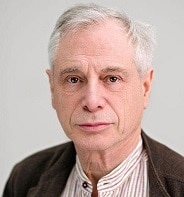
Biography
Dan Sperber is a philosopher and social and cognitive scientist, researcher at the Institut Jean Nicod in Paris and professor in the departments of Cognitive Science and of Philosophy of the Central European University in Budapest and Vienna. He is a member of the PERITIA advisory board and the author of Rethinking Symbolism (1975), On Anthropological Knowledge (1985), and Explaining Culture (1996); the co-author (with Deirdre Wilson) of Relevance: Communication and Cognition (1986/1995) and Relevance and Meaning (2012); and the co-author (with Hugo Mercier) of The Enigma of Reason (2017).
He has developed a naturalistic approach to culture under the name of epidemiology of representations or, more recently, cultural attraction theory. With Deirdre Wilson, he has developed a cognitive approach to communication known as relevance theory. With Hugo Mercier, he has developed an argumentative theory of reasoning and expanded it into an interactionist approach to reason. Cultural attraction theory, relevance theory, and the interactionist approach to reason have each been influential and also controversial.
Reading materials
- Hugo Mercier & Dan Sperber (2017) The enigma of reason. Harvard UP and Penguin.
- Deirdre Wilson & Dan Sperber (2012) Relevance and meaning (Cambridge UP).
- Sperber, D., Clément, F., Heintz, C. Mascaro, O., Mercier, H, Origgi, G., Wilson, D. (2010). Epistemic vigilance. Mind & Language 25: 359-93
- Sperber, D. (2010). The Guru Effect. Review of Philosophy and Psychology 1 (4):583-592
- “Epistemic Vigilance“, Dan Sperbert et al. (2010)
Abstract
Some philosophers have argued that humans trust one another automatically; others have argued that they only trust people whom they have reasons to believe are trustworthy. I argue that humans are simultaneously trustful and vigilant. To be vigilant is not to distrust, it is to spontaneously adjust one’s trust in the sources and the contents of communicated information.
Argumentation is a means to overcome the limits of trust. An audience who does not trust the good faith or the competence of a communicator may still be convinced by arguments the soundness of which can be assessed independently of their source. When, however, the arguments in support of some conclusion that would not be accepted on trust cannot be properly assessed by the audience—as happens commonly when experts speak—arguments can still be used not to convince but to impress, seduce, or intimidate the audience.
Lecture 6: A War on Science? The Death of Expertise? Rethinking Vaccine Hesitancy
Maya J. Goldenberg, University of Guelph
5 October, 4 PM Dublin | 5 PM Berlin | 7 PM Yerevan
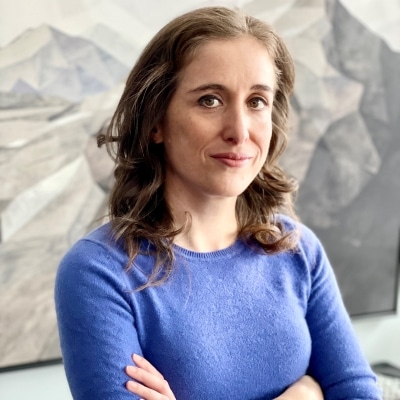
Biography
Maya Goldenberg is Associate Professor of Philosophy at the University of Guelph and a member of Graduate Faculty at the Institute for History and Philosophy of Science at the University of Toronto. Her research is in philosophy of medicine, philosophy of science, and bioethics. She is author of Vaccine Hesitancy: Public Trust, Expertise, and the War on Science (University of Pittsburgh Press, 2021) and journal publications addressing philosophical issues in evidence-based medicine, vaccination, science and values, clinical care, and women’s health.
Abstract
Because vaccine hesitancy has been framed as a problem of public misunderstanding of science, vaccine outreach has focused on educating the misguided publics. Where efforts to change vaccine attitudes have failed, cynicism has bred the harsher view that the publics are anti-science and anti-expertise. Yet research into science and the publics lends strong support to the view that public attitudes regarding scientific claims turn crucially on epistemic trust rather than familiarity with science itself. It follows that it is poor trust in the expert sources that engender vaccine hesitancy. This consideration redraws the lines of responsibility, where vaccine hesitancy signals a problem with scientific governance rather than a problem with the wayward publics. In order to improve vaccine communications, we should focus on building that trust rather than educating the misinformed publics or puzzling over the moral and epistemic failings of the publics. Doing this does not discount that public health agencies have the science on their sides. It does mean recognizing that the best science is not enough to ensure public uptake of health recommendations.
Reading materials
Dubé, Ève. Ward, Jeremy K., Verger, Pierre, and Noni E. MacDonald. “Vaccine Hesitancy, Acceptance, and Anti-Vaccination: Trends and Future Prospects for Public Health.” Annu. Rev. Public Health 2021. 42:175–91. https://www.annualreviews.org/doi/pdf/10.1146/annurev-publhealth-090419-102240
Lecture 7: Technology and Democracy – Cognitive Pressure Points and Solutions
Stephan Lewandowsky, University of Bristol
19 October, 4 PM Dublin | 5 PM Berlin | 7 PM Yerevan
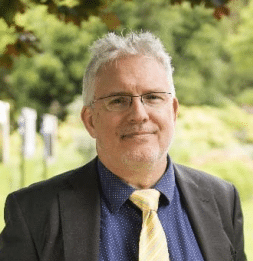
Biography
Stephan Lewandowsky is a cognitive scientist at the University of Bristol. He was an Australian Professorial Fellow from 2007 to 2012, and was awarded a Discovery Outstanding Researcher Award from the Australian Research Council in 2011. He held a Revesz Visiting Professorship at the University of Amsterdam in 2012, and received a Wolfson Research Merit Fellowship from the Royal Society upon moving to the UK in 2013. He was appointed a Fellow of the Academy of Social Science (UK) and a Fellow of the Association of Psychological Science in 2017. In 2016, he was appointed a fellow of the Committee for Skeptical Inquiry for his commitment to science, rational inquiry and public education. In 2019, he received a Humboldt Research Award from the Humboldt Foundation in Germany.
His research examines people’s memory, decision making, and knowledge structures, with a particular emphasis on how people update their memories if information they believe turn out to be false. This has led him to examine the persistence of misinformation and spread of “fake news” in society, including conspiracy theories. He is particularly interested in the variables that determine whether or not people accept scientific evidence, for example surrounding vaccinations or climate science.
He has published more than 220 scholarly articles, chapters, and books, including numerous papers on how people respond to corrections of misinformation and what variables determine people’s acceptance of scientific findings. (See www.cogsciwa.com for a complete list of scientific publications.) His research is currently funded by the European Research Council, the EU’s Horizon 2020 programme, and the Volkswagen Foundation.
Professor Lewandowsky also frequently appears in print and broadcast media and has contributed nearly 90 opinion pieces to the global media on issues related to his research.
Abstract
Democracy is under threat around the world including in Europe. How does the online information landscape contribute to that threat? Everyone talks about misinformation online, but what is really happening? Are citizens really drenched in misinformation and are they affected by it? Do social media really polarize societies? And if so, is regulation the answer?
Answers to those questions require an understanding of how people process information online and how their vulnerabilities might be exploited. I propose that there are several systematic pressure points between online architectures and human cognition. I highlight two pressure points that may engender a threat to democracy:
First, your attention online is worth money—a lot of money—to advertisers, and so the online economy is optimized to attract and capture your attention. Platforms make money while you hang around to consume more information. The quality of that information is of little concern to the platforms.
Second, virtually everything you see on the internet is curated by algorithms (e.g., the newsfeed on Facebook or Twitter). These algorithms are designed by platforms without public accountability or auditing, with the primary intent of keeping you engaged longer. Thus, if extremist and conspiratorial content can keep you engaged longer, then there is an incentive for platforms to show you that content.
Those pressure points can imperil our democracy when people are being radicalized or are presented with misinformation not because they want to, but because platforms are making money by facilitating it. Only through understanding of those pressure points between how humans think and how information is presented online can we hope to change anything.
I review the space of available solutions, focusing on the notion of “inoculation”, which involves providing people with the skills to avoid being misled by low-quality information.
Reading materials
Technology and Democracy: Understanding the influence of online technologies on political behaviour and decision-making. https://publications.jrc.ec.europa.eu/repository/handle/JRC122023
Lecture 8: Why Is Climate Action So Hard?
Philip Kitcher, Columbia University
2 November, 4 PM Dublin | 5 PM Berlin | 8 PM Yerevan
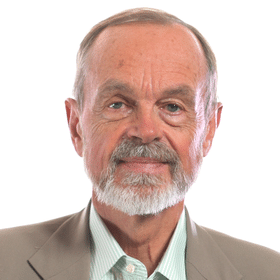
Biography
Philip Kitcher is John Dewey Professor Emeritus of Philosophy at Columbia University, New York. He is a mathematician, historian and philosopher by training, and he is regarded as one of the leading figures in the field of philosophy of science today.
He has authored over 15 books on topics ranging from evolution, epistemology, pragmatism, and secular humanism. His 2017 book ‘The Seasons Alter: How to Save Our Planet in Six Acts’, co-authored with Evelyn Fox Keller, has been characterised as a “landmark work of environmental philosophy that seeks to transform the debate about climate change”, presenting the realities of global warming through a human-centered narrative to better assimilate the science of climate change and its very real implications for human beings.
Early in his career, he was primarily interested in philosophy of mathematics and general philosophy of science. During the late 1970s, he became very concerned with the philosophy of biology. That concern led him to investigate not only conceptual and methodological issues in biology, but also questions about the relations of biological research to society and politics. During the 1990s, his interests broadened further to embrace the role of scientific inquiry in democratic societies. Since coming to Columbia, that line of investigation has been further elaborated in relation to pragmatism (especially William James and John Dewey). Part of this work advances a program for naturalistic ethics (one he takes to be Deweyan in spirit). He has also developed a program of research in philosophical themes in literature and music, focusing so far on Joyce and Wagner, and, in a recent book, on Thomas Mann and Mahler.
Abstract
For the better part of four decades, national leaders and their citizens have been warned that human activities are causing our planet to heat up – and that, if we do not change our ways, our descendants will have to cope with a harsh – possibly uninhabitable – environment. Despite repeated messages, very little has been done. Even when there are apparent successes, as with the 2015 Paris agreement, the targets set for reduction in emission of greenhouse gases have been inadequate. Since then, very few of the signatories are pursuing trajectories that will allow them to come close to attaining the goals to which they have committed themselves.
Climate action has been sporadic, and far too slow. Why? The obvious answer: distrust of the science. Yet, even in places where the scientific findings have been accepted, and even as skepticism is waning, the response remains sluggish. I suggest two main causes. First, current inequalities, within and between nations, generate a four-sided dilemma (or quadrilemma). Besides the impact on future generations, many nations and many people reasonably fear that their own futures will be devastated by the kinds of action proposed, unless serious efforts are made to protect and aid them – and they do not expect those efforts to be made. Second, the probabilistic character of the decision problem, coupled to our ignorance of the crucial probabilities (both now and in the foreseeable future), fosters the illusion that the safest course is not to modify the status quo.
The lecture will present the predicament, explain the two main causes of inaction, and offer some proposals for making progress. The best hope for a remedy would be to organize a world-wide venture in deliberative democracy, in which the quadrilemma was systematically confronted, and attempts were made to satisfy all constituencies. It is almost certain that any solution will not only have to revive democracy at the most fundamental level, and also mitigate the character of contemporary global capitalism.
Reading materials
- Philip Kitcher “Can we sustain democracy and the planet, too?”, in Janet Kourany and Martin Carrier (eds), Science and the production of Ignorance, MIT Press, 2020, 89-120
- Philip Kitcher “How to play Russian Roulette”, Los Angeles Review of Books, https://blog.lareviewofbooks.org/essays/play-russian-roulette/
- Philip Kitcher The Seasons Alter: How to Save the Human Future in Six Acts, (co-authored with Evelyn Fox Keller), W.W. Norton (Liveright): April 2017
Berlin Science Week
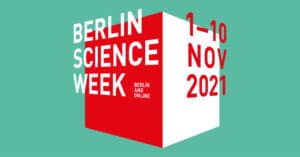
This lecture has been part of the 2021 Berlin Science Week. Berlin Science Week provides international scientists and science driven organisations with a stage to share insights into current topics, discuss grand challenges and envision the future together. More information here.
Lecture 9: What Is Knowledge Resistance?
Åsa Wikforss, Stockholm University
9 November, 4 PM Dublin | 5 PM Berlin | 8 PM Yerevan
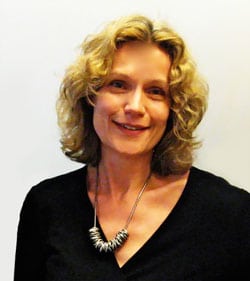
Biography
Åsa Wikforss (born 25 July 1961) is a professor of theoretical philosophy at Stockholm University, and a member of the Swedish Academy.
Wikforss does research in the intersection of philosophy of mind, language and epistemology and has published widely on a variety of topics in the area. She is a member of several international research networks and research councils and was elected to the Royal Swedish Academy of Sciences. In September 2017 she published Alternativa fakta. Om kunskapen och dess fiender (Alternative facts. On knowledge and its enemies), a book that has had a great impact in Sweden. During 2018 she has had over a hundred public appearances, speaking about knowledge and knowledge-resistance, in Sweden and beyond. She participates frequently in the public debate in Sweden, in print as well as on TV and radio.
On 9 May 2019 she was elected as a member of Swedish Academy, to succeed Sara Danius on seat 7. She was formally inducted on 20 December 2019.
Abstract
The talk examines the concept of knowledge resistance from a philosophical point of view. Knowledge resistance involves ignorance, but not all ignorance involves knowledge resistance. While ordinary ignorance can be overcome by supplying information, evidence, it is distinctive of knowledge resistant ignorance that supplying information does not help since the evidence is resisted. At a first approximation, then, knowledge resistance involves resisting available evidence. However, this characterization needs to be unpacked to be of any use. How is the notion of resistance to be understood and which are the psychological mechanisms involved? To what extent does knowledge resistance involve irrationality? And what does it mean for evidence to be available?
Reading materials
Lecture 10: Expertise, Democracy, and the Politics of Trust
Sheila Jasanoff, Harvard Kennedy School
16 November, 4 PM Dublin | 5 PM Berlin | 8 PM Yerevan
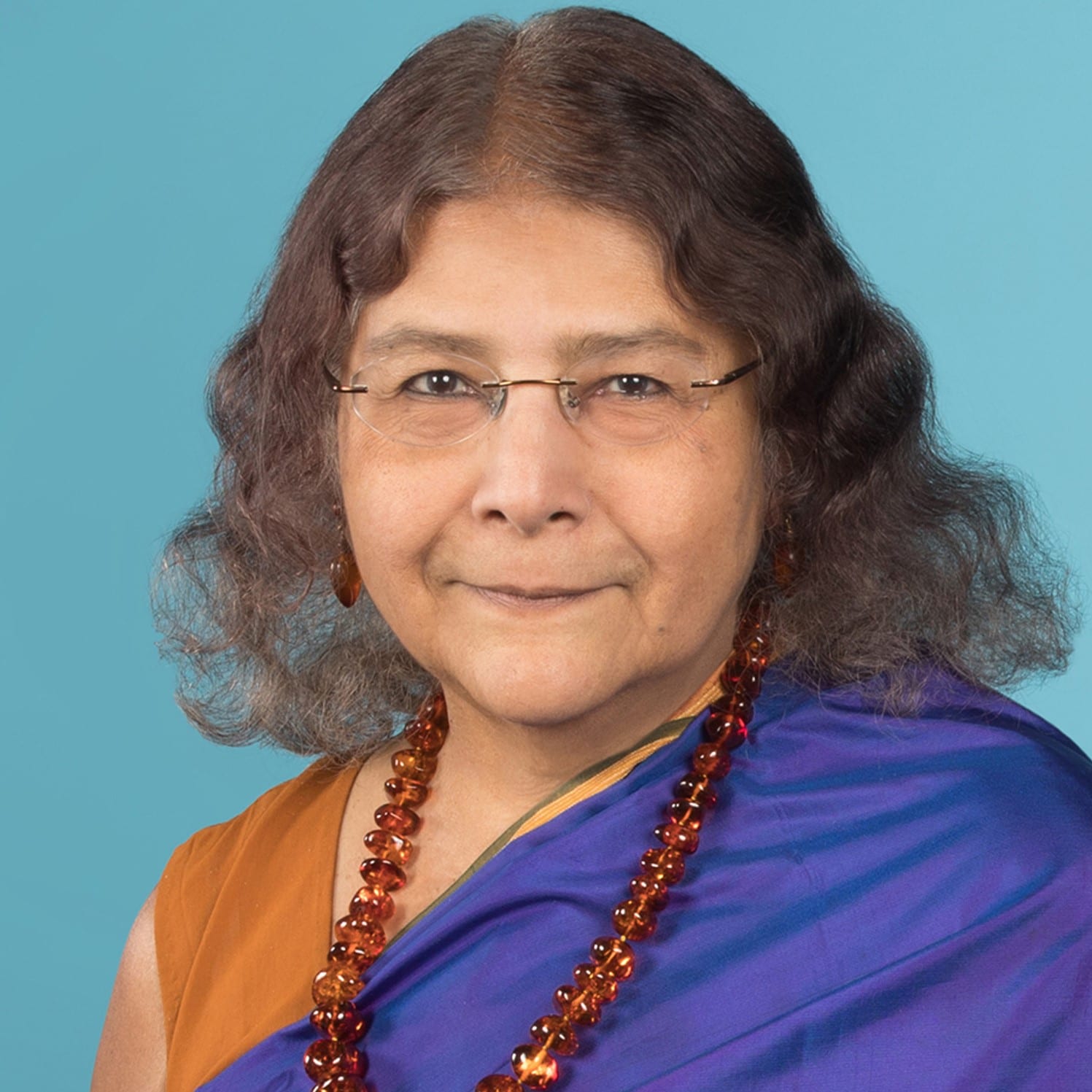
Biography
Sheila Jasanoff is Pforzheimer Professor of Science and Technology Studies at the Harvard Kennedy School. A pioneer in the social sciences, she explores the role of science and technology in the law, politics, and policy of modern democracies. Her books include The Fifth Branch, Science at the Bar, Designs on Nature, The Ethics of Invention, and Can Science Make Sense of Life? She founded and directs the STS Program at Harvard; previously, she was founding chair of the STS Department at Cornell. She has held distinguished visiting appointments at leading universities in Europe, Asia, Australia, and the US. Jasanoff served on the AAAS Board of Directors and as President of the Society for Social Studies of Science. Her honors include the SSRC’s Hirschman prize, the Humboldt Foundation’s Reimar-Lüst award, and a Guggenheim Fellowship. She is an elected member of the American Academy of Arts and Sciences and the American Philosophical Society, foreign member of the British Academy and the Royal Danish Academy, and member of the Council on Foreign Relations. She holds AB, JD, and PhD degrees from Harvard, and honorary doctorates from the Universities of Twente and Liège.
Abstract
Expert advice is needed to make decisions across the spectrum of public policy, from health, safety and environment to the management of the economy and national security. Yet phenomena such as climate skepticism and vaccine hesitancy indicate that all is not well in the relations between publics and experts in contemporary democracies. An abundance of scientific knowledge seems in many instances to have generated persistent controversies over technical claims and widespread disregard for expertise, even when there is strong consensus on what science says. This state of affairs suggests that the determinants of public trust lie not in the strength of the evidence as commonly understood, but in the efficacy of the institutions that societies rely on to translate expert knowledge into policy actions.
This lecture draws on comparative analyses of expert decision-making across democratic societies to argue that trust is a function of commitments to modes of evidence-making and public reason that are foundational to political cultures. Trust in expertise is a political achievement and cannot be short-circuited by epistemic fiat. It follows that the remedy for breakdowns in trust lies in the repair of the institutions charged with persuading publics that a claimed state of knowledge does indeed support proposed forms of public action.
Reading materials
- “Judgment under Siege: The Three-Body Problem of Expert Legitimacy,” in P. Weingart and S. Maasen, eds., Democratization of Expertise? Exploring Novel Forms of Scientific Advice in Political Decision-Making, Sociology of the Sciences Yearbook (Dordrecht: Kluwer, 2005), pp. 209-224. Download
- “Back from the Brink: Truth and Trust in the Public Sphere,” Issues in Science and Technology Vol. XXXIII, No. 4 (Summer 2017), pp. 25-28. Download
Moderator
Shane Bergin, University College Dublin
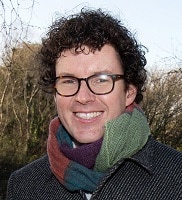
Biography
Dr Shane Bergin is a physicist and an assistant professor in science education at NUID UCD’s School of Education. Shane and his research group are interested in teaching and learning in physics (and STEM more broadly). Shane’s research considers these informal settings like lecture-halls or labs and also in more informal settings like a metro train. This research has been supported by grants from Science Foundation Ireland (SFI), Marie Curie Actions, and the Irish Research Council. In 2018, Shane produced and presented ‘101 The Ways We Learn’ – a 10-part podcast that explores the science of human learning. To inform these podcasts, Shane followed 10 people learning new things (like swimming, coding, and baking). Shane built on these, calling upon experts from a variety of academic disciplines. In 2016, Shane presented ‘Bright Sparks’ – an 8-part radio series on Ireland’s national radio station. Bright Sparks asked what happens when you empower clever people to follow their passions. Since 2015, Shane has run Quavers to Quadratics – a programme that sees primary school children play with ideas common to science and music.

